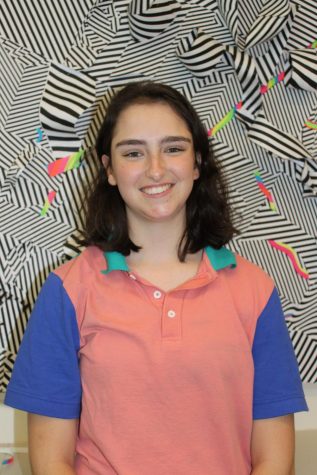9 Perfect Strangers: From Page to the Screen
September 28, 2021
The common phrase “read the book before the movie” can now be applied to television shows as more and more book series are being played out on the small screen. Author Liane Moriarty now has two book-to-show adaptations from her hit titles, “Big Little Lies” (2014) and “Nine Perfect Strangers” (2018). “Nine Perfect Strangers“ is currently getting the streaming service treatment as a Hulu original show that will run for eight episodes. I recently read “Nine Perfect Strangers,” unaware of the show, and it was an enjoyable, easy read. Despite its 463 page count, the story is rather short as the majority of it focuses and relies on the characters themselves; the setting is there to move the plot forward.
The simple premise of the book and show are the same: A group of broken people embark on a self help getaway at an exotic wellness retreat called “Tranquillum,” overseen by eccentric guru Masha, where danger and chaos slowly trickle into their 10-day adventure. The key difference between the book and show is the immense amount of drama and discord added into the show, whereas the book is quieter, more suspenseful, and mysterious (and arguably far better). Other minor details include the book taking place in Australia, while the show is set in America and features a more diverse cast.
The narrative offers extremely interesting and complex characters, which is a pattern of Moriarty’s writing, as “Big Little Lies” was similarly character-focused. Some characters are more complex than the others, and both the book and the show focus specifically on five of the twelve main characters: Masha, Francis, Heather, Napoleon, and Zoe. The others, Yao, Delilah, Ben, Jessica, Lars, Tony and Carmel, act as supporting characters who merge with the main five. The TV cast seamlessly interacts with one another, as they do in the book, but the showrunners made a mistake of pumping an excessive amount of drama into the Hulu production. It’s not the casting or setting that’s particularly off, it’s more the pacing and immense change made for it to fit a drama series format. Because the book was rather tame, I understand why they needed to spice it up with shock value, but this type of book just doesn’t fit the formula for a good show. “Big Little Lies” is an amazing book to show adaptation, but that’s because it didn’t need excessive drama to make it an A+ show. The plot was incredibly clever and complex, whereas “Nine Perfect Strangers” is rather straightforward. There is a reason the book is a best seller and the show has roughly 60% on Rotten Tomatoes and IMDB.
The first three episodes have been my favorites, incidentally being the most tame episodes out of the eight. As soon as Tony and Napoleon maniacally hunted down and killed a goat a la “Lord of the Flies,” I knew the show was going downhill. An obligatory rage- and drug-induced exercise, where characters are given a wooden sword to smack a dummy with, was another one of the scenes that broke the seriousness and mystical illusion of the plot. And, oh yeah, the characters are also pumped up with increasingly strong doses of LSD in their “cleansing smoothies,” which, while included in the book, was taken to absurd extremes in the show.
Nonetheless, the show is still entertaining. Luckily, it keeps the complexity of the characters from the book, grounding what little it had left to the book. We also get to know more about these characters in the TV version, especially the elusive Masha and her backstory. It is fascinating to see what the showrunners came up with for Masha’s dark past and her intentions to create this out-of-the-ordinary retreat, but, once again, I favored the book. I particularly appreciated how in the book, Moriarty kept Masha as a sort of third party from the rest of the group, as she is this creepy outsider enigma of a character. When we see her backstory in the TV version, the etherealness and mystery of her character fades, assigning her a similar role to the nine strangers attending her retreat.
There are only a handful of stories that successfully make us feel empathy for the “villain” (The “wretch” from Mary Shelley’s “Frankenstein“ and The Joker from the DC Universe), but this is not that case with Masha in “Nine Perfect Strangers.”
I would recommend reading and watching both as they are equally entertaining, but not equally written and conveyed.











